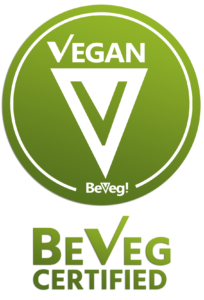 This article was originally posted on oukosher.org
This article was originally posted on oukosher.org
While there is a general agreement about what makes something vegan, there are currently no regulations governing the claim that a product is Vegan within North America or Europe. Vegan claims are not regulated by the FDA or the EU which means that a manufacturer of the broad range of products that vegan can apply to, can and do, in many cases, certify themselves, making it difficult to maintain a vegan standard. This is why BeVeg, the OU’s partner in vegan certification sought out and received ISO accreditation.
Joint Statement from Food Drink Europe, European Vegetarian Union and Euro Commerce
To date, there is no legally binding definition of the terms “food suitable for vegans” and “food suitable for vegetarians” for food labeling purposes – neither at EU nor at Member State level. The rising interest in and demand for vegan and vegetarian foods, and the increasing importance of this market segment, makes it essential to have a definition to provide consumers the ability to make informed choices and guarantee the functioning of the Single Market for foodstuffs.
The food sector is developing an ever-widening range of products that are being marketed as suitable for vegans and vegetarians or using similar terms. The general idea of vegan and vegetarian foods (no animal products or no animal flesh, respectively) is clear, but there can be differing interpretations when it comes to the detail. Contradictory national recommendations on food labeling can hamper the free movement of goods across Europe. To avoid confusion on the part of the consumers, and provide all actors in the food supply chain with legal certainty, appropriate, legal measures are needed covering the labeling of foods produced without the use of all or certain substances of animal origin.
The BeVeg Vegan Requirements
BeVeg has two logos. One for certified vegan alcoholic beverages, and one for other certified vegan products. Label use is licensed to companies whose product research reveals results in alignment with this global BeVeg vegan standard. BeVeg is recognized by foreign certification bodies and accredited by national and international institutions, and is an official technical program built is accordance to ISO qualifications. To date, BeVeg is the world’s only ISO 17065 accredited vegan trademark
The BeVeg vegan certification trademark means the final certified vegan product meets the following criteria:
- Does not contain any animal ingredients, animal by-products, or animal-derived GMOs or genes in the manufacturing and ingredient sourcing of the finished BeVeg certified vegan product;
- Comes from a factory that was audited to demonstrate a commitment to vegan controls and vegan integrity to prevent cross-contamination with animals materials; and
Does not involve any animal testing and is cruelty-free.
Notably, “plant based” claims are not necessarily vegan, but vegan claims are always plant-based. Plant-based means based mostly in plants but it does not mean free from animal contaminants and it does not address animal cruelty. Vegan by BeVeg encompasses plant-based, vegan, and cruelty-free.
BeVeg, in concert with OU Kosher Certification, manages the vegan certification process, with a thorough audit of the applied for products, and signs off on the certifications only after all ingredients and processes are in alignment with the Beveg standard. Honest and thorough information gathering and on site audits are at the foundation of trust, and are measurable at a company’s bottom line.
OU Kosher’s auditors have been integral to the trust the kosher consumers place in the brand. And that is the standard being applied to the Beveg vegan certification seal. The vegan label claim can be trusted, because that brand has committed to being a partner in the process with BeVeg and OU Kosher. To that end they have disclosed trade secrets to BeVeg attorneys in the spirit of full transparency. BeVeg business is founded on consumers’ expectations of truth, transparency, information, and accountability.
Newly certified vegan brands audited by OU rabbis include: Astor Chocolate, Husk Organics, Planterra Foods, Unreal Deli, Happy Hummus, Rizek Cacao, Nutralia, Juanita’s Snacks, Unity Vibration Kombucha, Rabbit Hole Foods, Nutra Star vitamins, Clean Machine protein powder, All Y’alls Foods vegan jerky. Other brands BeVeg has previously worked with are: world-renowned sushi restaurant Nobu to certify O.R.E. Raw Vegan Gin on its menu, Summerhill Pyramid Winery, the most visited winery in British Columbia, Leopard Frog United Nations of Wine in South Africa, Broadland Wineries in the United Kingdom, Priam Vineyards in Connecticut, Vice Wine in Napa, and alongside supermodel, Christie Brinkley to certify her line of Italian wines, Bellissima Prosecco. Notably, BeVeg has expanded beyond the food sector to also certify facilities producing and exporting vegan cosmetics and textiles globally.
Those interested in extending their product’s reach to new markets with brand trust and consumer confidence in vegan label claims, can now easily add vegan certification to their existing OU Kosher certification. Since OU Kosher has the world’s largest market share of certified products, with over 1.2 million products under certification, OU Kosher certified companies can now add BeVeg vegan certified products to their portfolio of certifications, with minimal factory disruption as the vegan audit can take place on the same day as their next Kosher audit.



